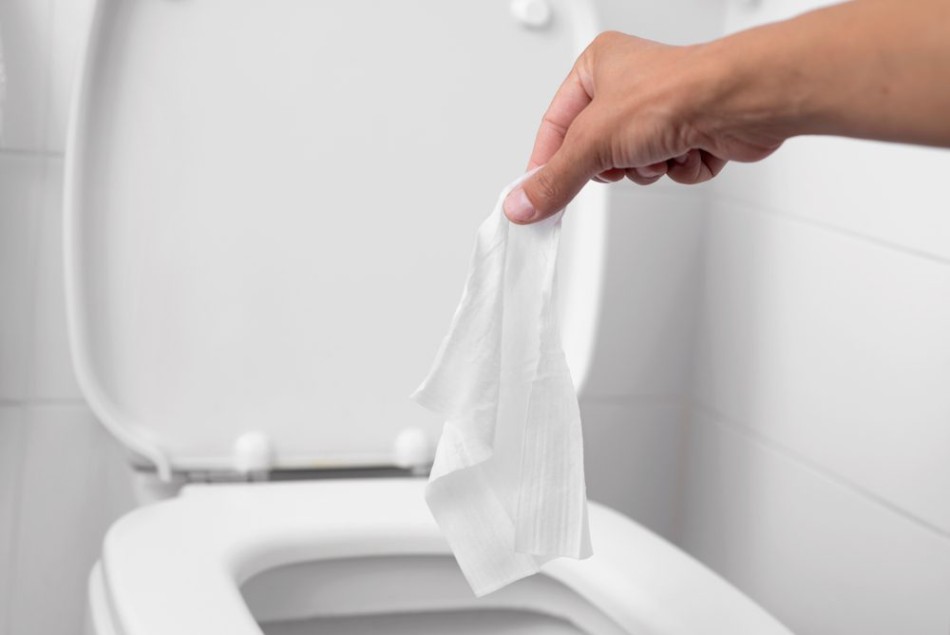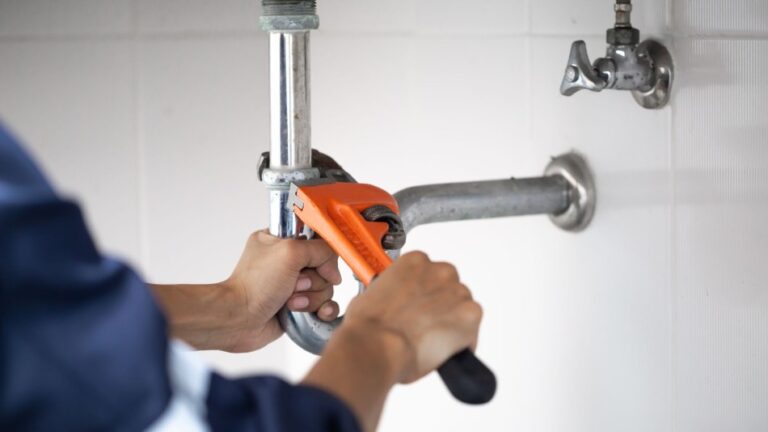Have you ever experienced your toilet making odd noises after flushing a wipe? Or perhaps you’ve detected an unpleasant odor in your bathroom, despite giving it a thorough scrub? Maybe you’ve even spotted unexplained water pooling near your shower drain.
It’s easy to assume these issues stem from a plumbing fault. However, the reality is that those so-called “flushable” wipes you’re tossing into the toilet don’t break down like regular toilet paper.
In fact, they can cause significant harm to your septic system. Continuing to flush them could result in problems as severe as trying to push a pair of jeans through your pipes.
What Are Flushable Wipes?
Flushable wipes are crafted from non-woven materials such as polyester, viscose, or polypropylene fibers. Unlike toilet paper, which quickly disintegrates in water, these wipes are engineered to remain intact even when damp. Consequently, they fail to break down within your septic system, leading to blockages and damage over time.
Despite claims of being “flushable,” these wipes don’t behave like toilet paper. Rather than disintegrating, they can clog your plumbing, your septic tank, and create serious complications down the road.
How Do They Affect Your Septic System?
Things You Should Never Flush Down Your Toilet:
– Flushable wipes
– Baby wipes
– Facial tissues
– Paper towels
– Cotton swabs and balls
– Sanitary pads and tampons
– Grease and cooking oil
– Dental floss
– Diapers
– Medications
The U.S. Environmental Protection Agency (EPA) advises that only human waste and toilet paper should be flushed, clearly warning against flushing wipes—even if they’re labeled as “flushable”—due to their potential to clog pipes and damage septic systems.
Here’s the real deal:
– They don’t decompose.
Made from tough synthetic fibers, flushable wipes resist breaking down. In septic tanks, they either sink or float, but never dissolve.
– They disrupt bacterial activity.
Septic tanks depend on anaerobic bacteria to break down organic waste. Wipes not only evade decomposition but often contain preservatives and chemicals that can upset this microbial environment.
– They block baffles and outflow pipes.
Instead of flowing smoothly, wipes tend to get caught in the baffles (the barriers inside the tank that prevent solids from entering the drainfield). This problem worsens when they combine with grease and hair, forming dense clogs that can obstruct your outlet pipe.
– They overload the drainfield.
A 2021 Water UK study revealed that wet wipes accounted for 93% of materials causing sewer blockages. If they make their way past the septic tank into the leach field, they can clog the soil pores, halting the natural filtration process—a failure often necessitating excavation and a complete drainfield replacement, which can cost ₹3–5 lakh or more in India.
Most homeowners remain oblivious to the damage until it’s far too late.
You toss the wipe in the toilet and watch it disappear. At first glance, everything seems okay. But behind the scenes, those wipes are piling up—quietly blocking the way out, suffocating bacteria, and priming you for a catastrophic flush that could spell disaster.
By the time you notice issues like unpleasant odors, gurgling toilets, or damp spots in your yard, it’s no longer just about clearing a clog. You’re dealing with months of accumulation—which often calls for pumping, jetting, or even replacing parts of your system.
All because of a wipe that simply doesn’t break down.
If You Have to Use Wipes, Keep Your Septic System Safe
We still recommend steering clear of flushable wipes whenever possible.
But if you absolutely must use them, follow these tips:
– Never flush them. Instead, opt for a lined bin with a lid—this approach is safer and truly reflects the concept of “disposable.”
– Limit yourself to one wipe at a time. Treat them with care, not like toilet paper.
– Enhance your system with a monthly biological treatment. Products like [product name] can help break down the residues that your tank can struggle with, including those from wipes and tough cleaners.
A thriving tank isn’t just about what goes down the drain; it’s also about taking care of the systems that do the hard work beneath the surface.



